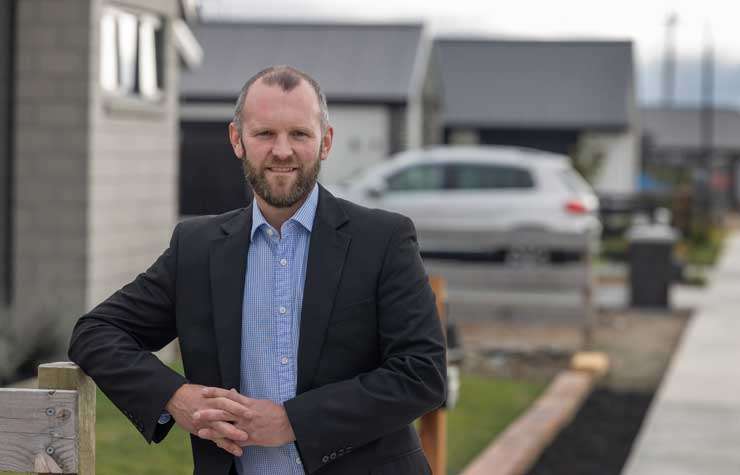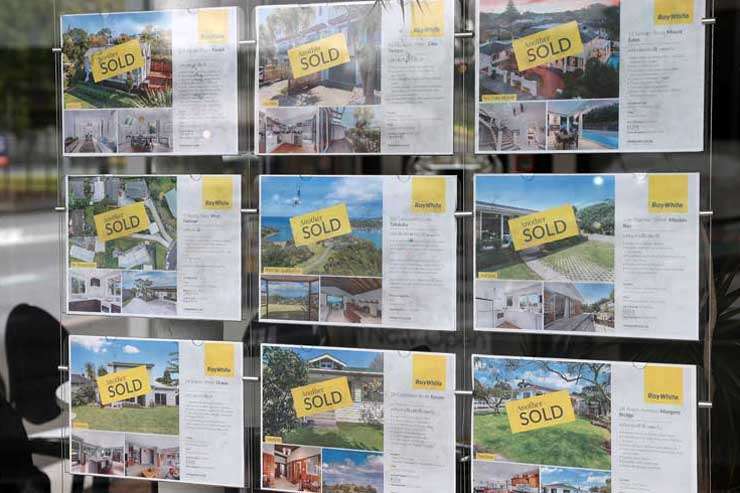Property resale gains in the top 10% of the Auckland housing market late last year ranged from $181,000 for a house in east Auckland that had been owned for just 12 months to more than $12m for a house in Herne Bay that had been owned for nearly 40 years.
Those figures relate to the last three months of 2021, when the median gain in the top bracket was $1.84m with a median hold period (how long the property had been owned before selling) of 8.6 years, said Kelvin Davidson, CoreLogic’s chief property economist.
Davidson was breaking down numbers from the CoreLogic’s Pain and Gain Report, which analyses the gain or loss made by a property over or below what the seller paid (almost no properties made a loss last year anywhere in New Zealand).
Davidson said a spread of 80 suburbs was covered in the top tier, with the biggest gains concentrated in the prized double grammar zone suburbs of Remuera and Mt Eden and Grey Lynn, in the city’s inner west.
Start your property search
“This is not to say that suburbs like Herne Bay or Ponsonby don’t have large gains, too – just that they may not have had many resales in the last three months of 2021,” he said.
The bottom 10% of the market saw gains as well. In this tier, sale prices stretched as far as $915,000 and gains ranged from $3000 for a property in Manurewa, in South Auckland, which had been owned for two years, to $881,250 for a property in neighbouring Clover Park, which had been owned for almost 41 years.

CoreLogic chief economist Kelvin Davidson says South Auckland suburbs dominated the bottom 10% of resales in the city. Photo / Peter Meecham
The median gain in this bracket was $328,500 - $1.5m lower than what the top 10% made – and the median hold period was just under six years.
The lower hold period shows some evidence the lower tiers turn over a little faster, which fits with the greater likelihood of first home buyers and investors buying in those areas as opposed to more expensive suburbs, says Davidson.
Suburbs represented in the bottom 10% include Waiuku, Pukekohe, Papakura and Manurewa, all in city’s south, and Henderson, in the city’s west.
Ray White lead auctioneer Sam Steele said that last year belonged to South Auckland, with some suburbs, like Manurewa and Otara, doubling in value in just over a year.
“South Auckland has seen one of the biggest explosions in value that I've seen in my career and it's happened over a very short time frame,” he said.
That’s partly because of the development that was going on. “We saw properties in South Auckland that sold 18 months ago for say $600,000 sell again last year for over $1m.”
South Auckland had gone from an area people used to overlook to an area people don't want to miss out on, Steele said.
While partly related to the Covid buying frenzy, it’s also because of the rule changes on what could be built in urban Auckland – and some of the properties that made big money were flipped for profit, he said.
“South Auckland has a lot of traders. That’s a big market that we saw at the end of last year; people that were buying properties and either doing a quick renovation on them or holding them for a short period and then on-selling them.”
While the Brightline test was brought in to stop speculators making a quick profit, professional traders tend are GST registered and pay tax on each sale, Steele said.

Sold stickers on a real estate window in central Auckland. Photo / Fiona Goodall
Ray White Remuera agent Steve Koerber said sellers in his patch had been astonished at the gains they made.
“The one that stands out in my mind was a big mansion on Pere Street, on Mt Hobson. We sold that one for $6.138m and I think they only paid about $4.1m for it about two years earlier.”
The vendors had painted the house but hadn’t made other changes.
To get those sort of gains properties usually have to be held for longer - but not last year, Koerber said.
However, Auckland’s housing market has changed. While some properties are still getting good gains, those are becoming few and far between with buyers at auctions hoping for lower prices than what they would have paid six months ago.








































































